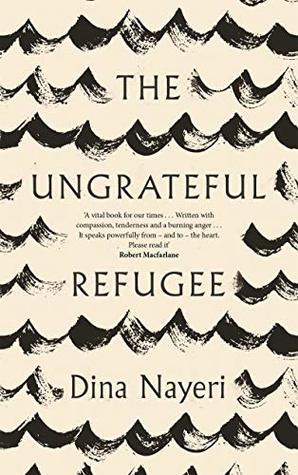More on this book
Community
Kindle Notes & Highlights
if you are born in the Third World and you dare to make a move before you are shattered, your dreams are suspicious.
they can’t acknowledge a shred of joy left behind or they risk becoming migrants again.
all villainy starts on native soil, where rotten people can safely be rotten, where government exists for their protection.
Someone told me (perhaps they read it somewhere) that refugees are forced into cement shoes and told, ‘Now you have roots.’ But being held down isn’t roots. They are told not to move, to build a life for a year, two years, to learn a culture they may soon leave behind. But the knowledge that you haven’t been accepted hardens the soil.
‘To make someone wait:’ writes Barthes, ‘the constant prerogative of all power, “age-old pastime of humanity.”’
That it happened doesn’t make it true enough for fiction and, like the asylum seeker who isn’t believed, novels that are seen to lie are doomed to death.
to pass an asylum interview, you don’t just need a true story. You need to tell that story the English way, or Dutch or American way. Americans enjoy drama; they want to be moved. The Dutch want facts. The English have precedents, stories from each country deemed true that year, that month. The Dutch have something similar. Americans like the possibility of a grand success story, they adore exceptionalism and want to make all greatness American.
To satisfy an asylum officer takes the same narrative sophistication it takes to please book critics. At once logical and judgmental of demeanour, both are on guard for manipulation and emotional trickery. Stick to the concrete, the five senses, they say. Sound natural, human, but also dazzle with your prose. Make me cry, but a whiff of sentimentality and you’re done. Stay in-scene, but also give compelling evidence of internal change. Go ahead. Try it. It’s not so hard, you penniless, traumatised fugitive from a ravaged village, just write a story worthy of The New Yorker.
Originality is the privilege of the educated. And yet, when the refugee refuses to be original or specific, her story fails; she is sent away. If, in her terror and shame, her memory alters or embellishes, collapsing ten years of suffering into a year, or changing a lost hand to a lost arm, it is because she knows that if you were transported to her home, you’d see hangings, shootings, beheadings. You’d say, ‘Get the hell out.’
Later I would see that my mother’s broken English was far more beautiful than my perfect one. She had a strong voice, writers would say. ‘I got no wave’ is so much more evocative than ‘My phone isn’t getting reception’. ‘Here is all over poops’ is leagues more succinct and indignant than ‘There’s too much shit on this street’. This is my mother’s razor tongue.
‘I do not see that it is necessary for any people to prove to another that they built cathedrals or pyramids before they can be entitled to peace and safety. Flowing from that, it is not necessary for black people to invent a great fictitious past in order to justify their human existence and dignity today. What they must do is recover what belongs to them – their story – and tell it themselves.’


